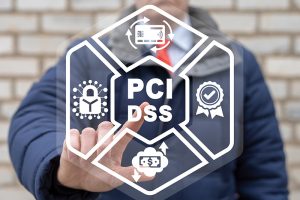 PCI compliance, which stands for Payment Card Industry Data Security Standard, is a set of security standards and guidelines designed to ensure that companies that handle credit card information do so in a secure and responsible manner. Here are several reasons why you should care about PCI compliance:
PCI compliance, which stands for Payment Card Industry Data Security Standard, is a set of security standards and guidelines designed to ensure that companies that handle credit card information do so in a secure and responsible manner. Here are several reasons why you should care about PCI compliance:
1. Legal and Regulatory Requirements: Many governments and regions have laws and regulations in place that require organizations to protect the sensitive payment card data of their customers. Non-compliance can result in hefty fines and legal consequences.
2. Avoid Financial Penalties: Payment card companies (Visa, MasterCard, etc.) can impose fines on businesses that are not PCI compliant. These fines can be significant and can harm your bottom line.
3. Protect Customer Trust: Customers trust businesses to protect their payment card information. If a data breach occurs due to non-compliance, it can lead to a loss of trust and credibility, potentially causing customers to take their business elsewhere.
4. Data Security: PCI compliance helps ensure that you have robust security measures in place to protect payment card data. This not only helps safeguard your customers' information but also protects your organization from the financial and reputational damage of a data breach.
5. Reducing Data Breach Risk: Compliance with PCI standards reduces the risk of data breaches. Data breaches can be costly to remediate, and they can result in a damaged reputation and loss of business.
6. Industry Best Practices: PCI compliance provides a framework of best practices for securing payment card data. Following these practices can enhance your overall cybersecurity posture.
7. Competitive Advantage: Being PCI compliant can be a competitive advantage. It demonstrates to customers that you take data security seriously and can attract businesses that require PCI compliance from their vendors.
8. Liability Reduction: Compliance can reduce your liability in the event of a data breach. While it doesn't guarantee complete immunity from legal action, it can demonstrate that you took reasonable steps to protect customer data.
9. Partner Requirements: If you work with partners, vendors, or service providers in the payment card industry, they may require you to be PCI compliant as a condition of doing business with them.
10. Peace of Mind: Achieving and maintaining PCI compliance can give you peace of mind knowing that you've taken steps to protect sensitive payment card data and reduce the risk of data breaches.
In summary, PCI compliance is not just a box to check; it's a crucial part of responsible business operations, helping you protect your customers, your business, and your reputation. Non-compliance can lead to legal, financial, and reputational consequences, making it essential for any organization that handles payment card data to take PCI compliance seriously.





